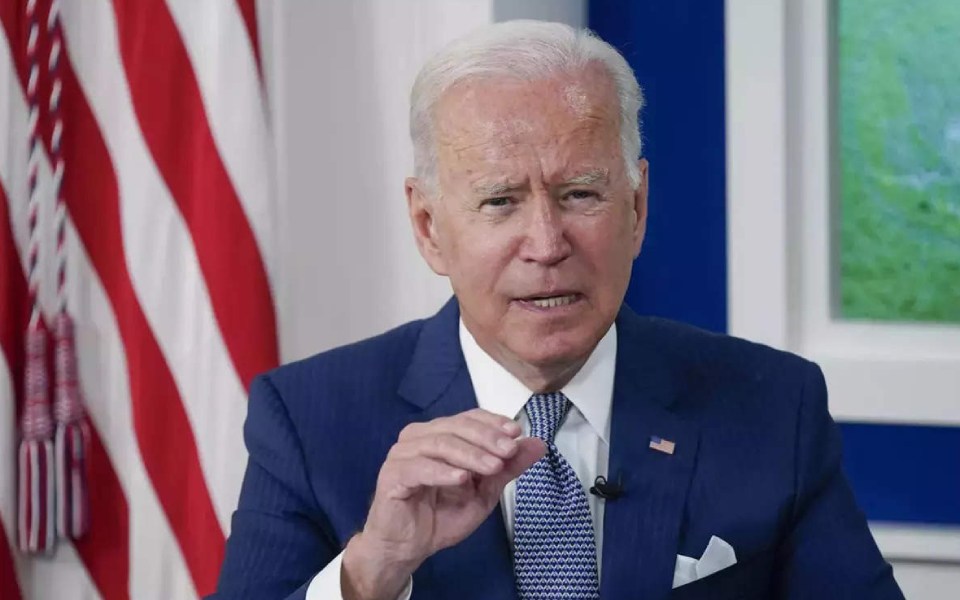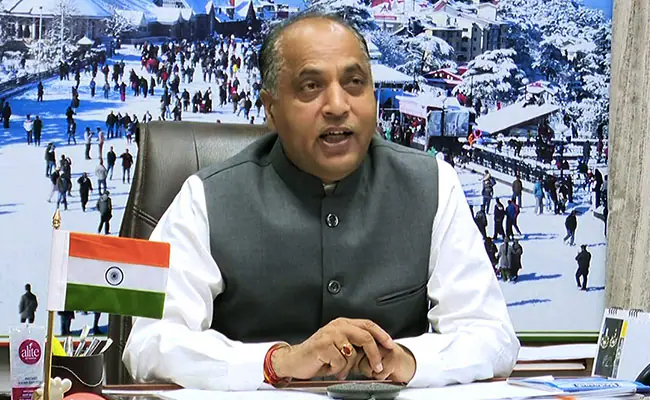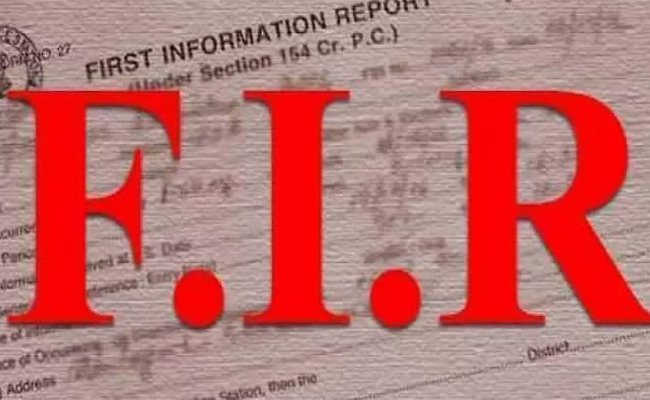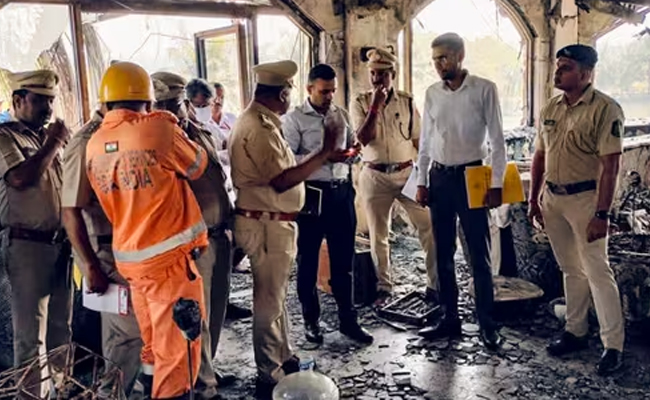New York, Feb 27: President Joe Biden said Monday that he hopes a cease-fire between Israel and Hamas that would pause hostilities and allow for remaining hostages to be released can take effect by early next week.
Asked when he thought a cease-fire could begin, Biden said, "Well I hope by the beginning of the weekend. The end of the weekend. My national security adviser tells me that we're close. We're close. We're not done yet. My hope is by next Monday we'll have a ceasefire."
Biden commented in New York after taping an appearance on NBC's "Late Night With Seth Meyers."
Negotiations are underway for a weekslong cease-fire between Israel and Hamas to allow for the release of hostages being held in Gaza by the Hamas group in return for Israel releasing hundreds of Palestinian prisoners. The proposed six-week pause in fighting would also include allowing hundreds of trucks to deliver desperately needed aid into Gaza every day.
Negotiators face an unofficial deadline of the start of the Muslim holy month of Ramadan around March 10, a period that often sees heightened Israeli-Palestinian tensions.
Meanwhile, Israel has failed to comply with an order by the United Nations' top court to provide urgently needed aid to desperate people in the Gaza Strip, Human Rights Watch said Monday, a month after a landmark ruling in The Hague ordered Israel to moderate its war.
In a preliminary response to a South African petition accusing Israel of genocide, the U.N.'s top court ordered Israel to do all it can to prevent death, destruction and any acts of genocide in the tiny Palestinian enclave. It stopped short of ordering an end to the military offensive that has triggered a humanitarian catastrophe.
Israel denies the charges against it, saying it is fighting in self-defense.
Nearly five months into the war, preparations are underway for Israel to expand its ground operation into Rafah, Gaza's southernmost town along the border with Egypt, where 1.4 million Palestinians have sought safety.
Early Monday, Israeli Prime Minister Benjamin Netanyahu's office said the army had presented to the War Cabinet its operational plan for Rafah as well as plans to evacuate civilians from the battle zones. It gave no further details.
The situation in Rafah has sparked global concern. Israel's allies have warned that it must protect civilians in its battle against the Hamas group.
Also Monday, Palestinian Prime Minister Mohammed Shtayyeh submitted his government's resignation, and President Mahmoud Abbas is expected to appoint technocrats in line with U.S. demands for internal reform. The U.S. has called for a revitalized Palestinian Authority to govern postwar Gaza ahead of eventual statehood a scenario rejected by Israel.
In its Jan. 26 ruling, the International Court of Justice ordered Israel to follow six provisional measures, including taking "immediate and effective measures to enable the provision of urgently needed basic services and humanitarian assistance" to Gaza.
Israel also must submit a report on what it is doing to adhere to the measures within a month. The Israeli Foreign Ministry said late Monday that it has filed such a report. It declined to share it or discuss its contents.
Israel said 245 trucks of aid entered Gaza on Sunday. That's less than half the amount that entered daily before the war.
Human Rights Watch, citing U.N. figures, noted a 30% drop in the daily average number of aid trucks entering Gaza in the weeks following the court's ruling. It said that between Jan. 27 and Feb. 21, the daily average of trucks entering was 93, compared to 147 trucks a day in the three weeks before the ruling. The daily average dropped to 57, between Feb. 9 and 21, the figures showed.
The rights group said Israel was not adequately facilitating fuel deliveries to hard-hit northern Gaza and blamed Israel for blocking aid from reaching the north, where the World Food Program said last week it was forced to suspend aid deliveries.
"The Israeli government has simply ignored the court's ruling, and in some ways even intensified its repression," said Omar Shakir, Israel and Palestine director at Human Rights Watch.
The Association of International Development Agencies, a coalition of over 70 humanitarian organizations working in Gaza and the West Bank, said almost no aid had reached areas in Gaza north of Rafah since the court's ruling.
Israel denies it is restricting the entry of aid and has instead blamed humanitarian organizations operating in Gaza, saying large aid shipments sit idle on the Palestinian side of the main crossing. The U.N. says it can't always reach the crossing because it is at times too dangerous.
In some cases, crowds of desperate Palestinians have surrounded delivery trucks and stripped them of supplies. The U.N. has called on Israel to open more crossings, including in the north, and to improve the process.
Netanyahu's office said that the War Cabinet had approved a plan to deliver humanitarian aid safely into Gaza in a way that would "prevent the cases of looting." It did not disclose further details.
The war, launched after Hamas-led group rampaged across southern Israel, killing 1,200 people, mostly civilians, and taking roughly 250 people hostage, has caused vast devastation in Gaza.
Nearly 30,000 people have been killed in Gaza, two-thirds of them women and children, according to the Gaza Health Ministry which does not distinguish in its count between fighters and noncombatants. Israel says it has killed 10,000 Hamas group members, without providing evidence.
Fighting has flattened large swaths of Gaza's urban landscape, displacing about 80% of the territory's 2.3 million people, who have crammed into increasingly smaller spaces looking for elusive safety.
The crisis has pushed a quarter of the population toward starvation and raised fears of imminent famine, especially in the northern part of Gaza, the first focus of Israel's ground invasion. Starving residents have been forced to eat animal fodder and search for food in demolished buildings.
"I wish death for the children because I cannot get them bread. I cannot feed them. I cannot feed my own children!" Naim Abouseido yelled as he waited for aid in Gaza City. "What did we do to deserve this?"
Bushra Khalidi with U.K. aid organization Oxfam told The Associated Press that it had verified reports that children have died of starvation in the north in recent weeks, which she said indicated aid was not being scaled up despite the court ruling.
Aid groups say deliveries also continue to be hobbled by security issues. The French aid groups M decins du Monde and Doctors Without Borders each said that their facilities were struck by Israeli forces in the weeks following the court order.
Let the Truth be known. If you read VB and like VB, please be a VB Supporter and Help us deliver the Truth to one and all.
Shimla (PTI): Leader of Opposition Jai Ram Thakur on Tuesday said the state government should take concrete steps to prevent overcrowding at hospitals, enhance security arrangements, reduce excessive workload and curb administrative negligence, which he held responsible for the assault of a patient by a doctor at a prominent hospital here.
In a statement issued here, Thakur said that this incident is a serious warning to the health department and the state government.
His statement came a day after a junior resident doctor allegedly assaulted a patient, throwing multiple punches, following an argument at the Indira Gandhi Medical College (IGMC), sparking a protest with the victim's relatives demanding that the doctor be handed over to them.
A video of the shocking incident also surfaced on social media.
The leader of the opposition said the government should take concrete steps instead of making statements.
Expressing concern over the deteriorating condition of the healthcare sector in Himachal Pradesh, Thakur said today, the people are suffering due to this collapse in the sector.
"The state government should prioritise healthcare services and should immediately fill vacant posts in the sector. They should also strengthen security arrangements in hospitals and ensure uninterrupted supply of medicines and medical equipment in hospitals,” he added.
He further said that the state government should work honestly to ensure that the benefits of central schemes are provided to every person in Himachal Pradesh.
"Schemes such as Himcare and Ayushman Bharat should be ensured for the people, as they are very beneficial for poor and needy families as well as for the middle-class people. However, due to negligence and mismanagement of the government in implementing them, people are unable to avail the benefits,” Thakur said.
He also alleged that, despite the budget being allocated by the Centre for these schemes, patients are unable to avail the basic facilities.
The situation is such that even many essential medicines are not available for patients, he added.





